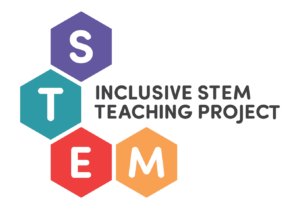
The Inclusive STEM Teaching Project (ISTP) is designed to advance the awareness, self-efficacy, and ability of STEM faculty, postdocs, graduate students, and staff to cultivate inclusive learning environments for all their students and to develop themselves as reflective, inclusive practitioners.
The economic prosperity of the United States relies on progress in science, the advancement of national health initiatives, and adaptation to an increasingly technical economy. This prosperity in turn relies on a talented workforce with the ability to nimbly address new challenges and develop innovative technologies. Colleges and universities can best prepare this future workforce by ensuring that educational environments are effective for a diverse range of students. The ISTP focuses on the design and dissemination of faculty development materials designed to enable faculty members to create more inclusive learning environments for their students. Specifically, the project incorporates research-based practices that enable students to develop further senses of self-efficacy, identity, persistence, and motivation to persist in STEM fields of study. The ISTP is intended to address persistent gaps in the rates at which women and members of underrepresented groups persist in STEM fields of study. Closing these gaps would lead to greater degree attainment and workforce entry.
The ISTP aims to build and sustain a diverse network of institutions through learning communities of trained facilitators to advance inclusive learning and teaching on their campuses. Drawing on embodied case studies and vignettes, participants in the ISTP online course engage in deep reflection and discussions around topics of equity and inclusion in learning environments across a variety of institutional contexts. Asynchronous online activities are extended through in-person and virtual face-to-face learning communities on participating campuses.
For more information, please visit the Inclusive STEM Teaching Project website.
Collaborative Award Name (Full): IUSE EHR – Inclusive Learning and Teaching in Undergraduate STEM Instruction
Awarding Organization: National Science Foundation (NSF)
Dates: 10/1/18 – 9/30/24
Award Number(s): 1821510, 1821528, 1821571, 1821574, 1821684
Collaborative Partners: Boston University, Des Moines Area Community College, Northwestern University, The University of Utah, University of Michigan Ann Arbor, University of Wisconsin-Madison
